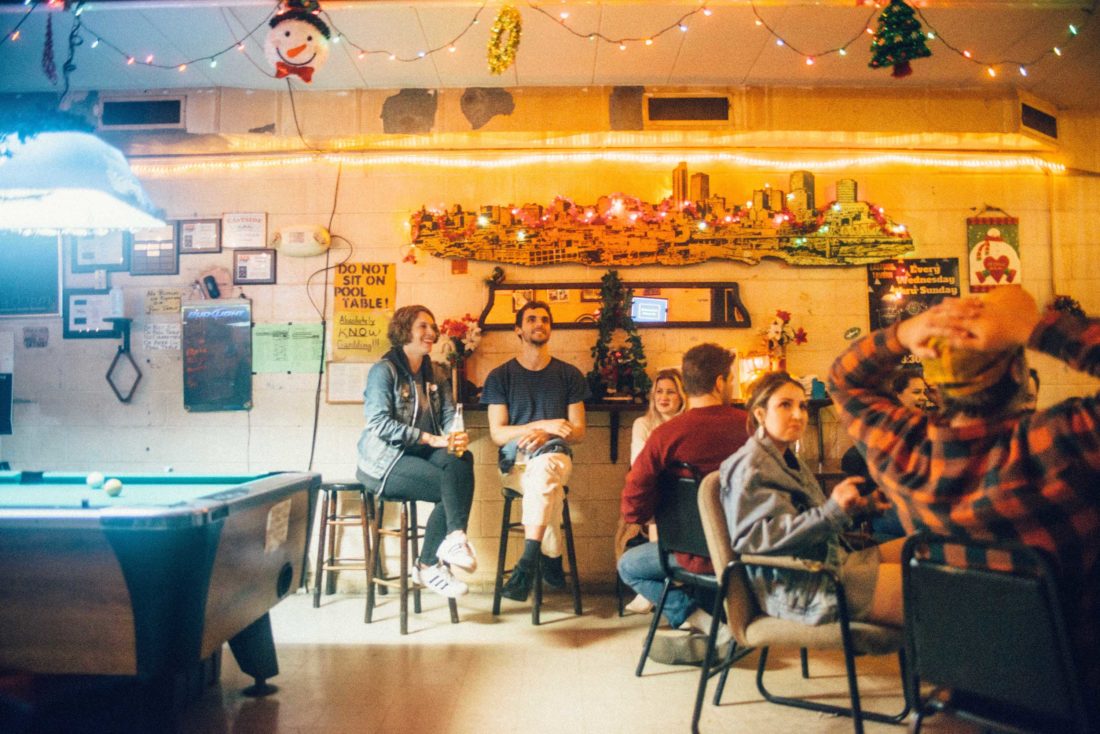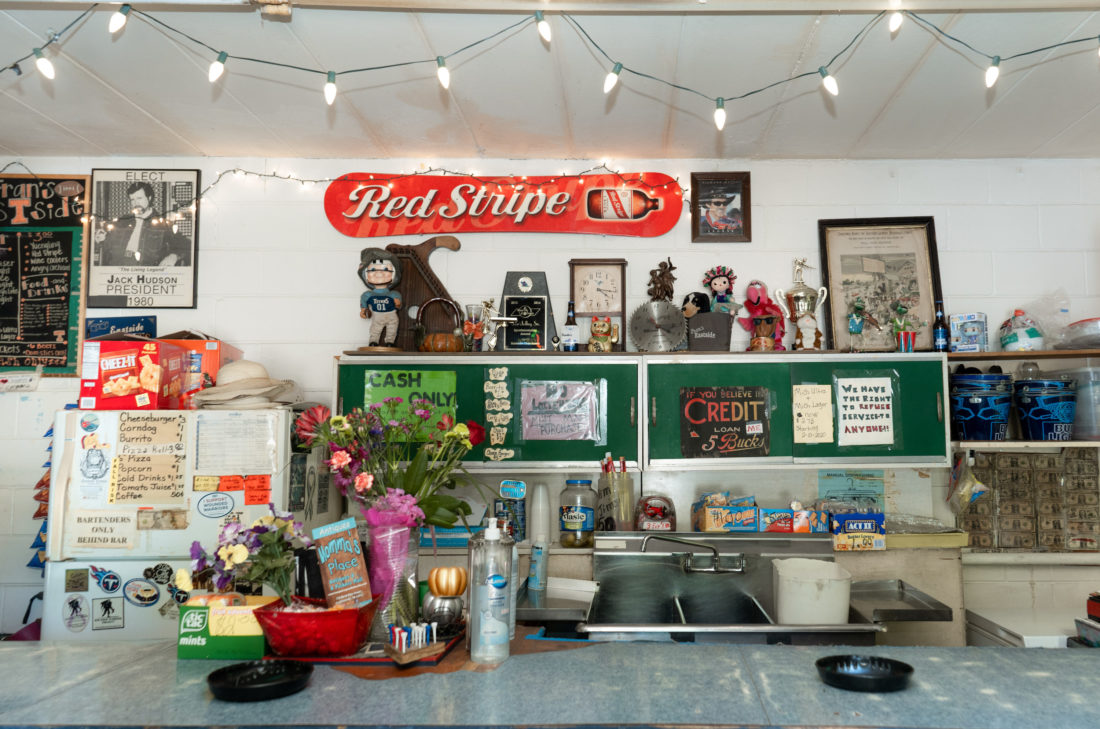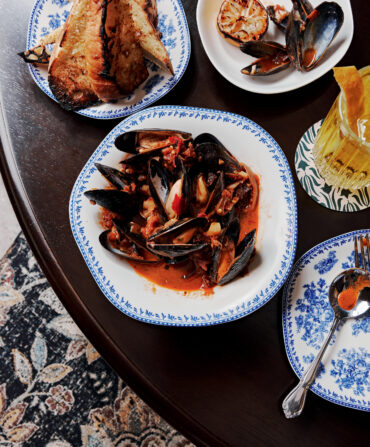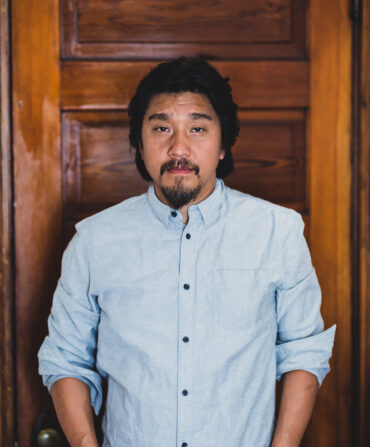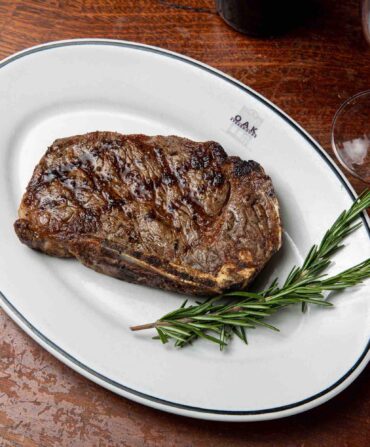It was the night before my best friend’s wedding, and I, the best man, had been tasked with getting the groom home relatively sober and at a reasonable hour. I failed, but not just because we were a bunch of dudes in our late 20s on the eve of a big adult commitment and drunk on two-dollar longnecks. It was because we were at Fran’s East Side, the legendarily grimy East Nashville dive bar, and for the first time in his life, my best friend had decided to get on stage and sing karaoke.
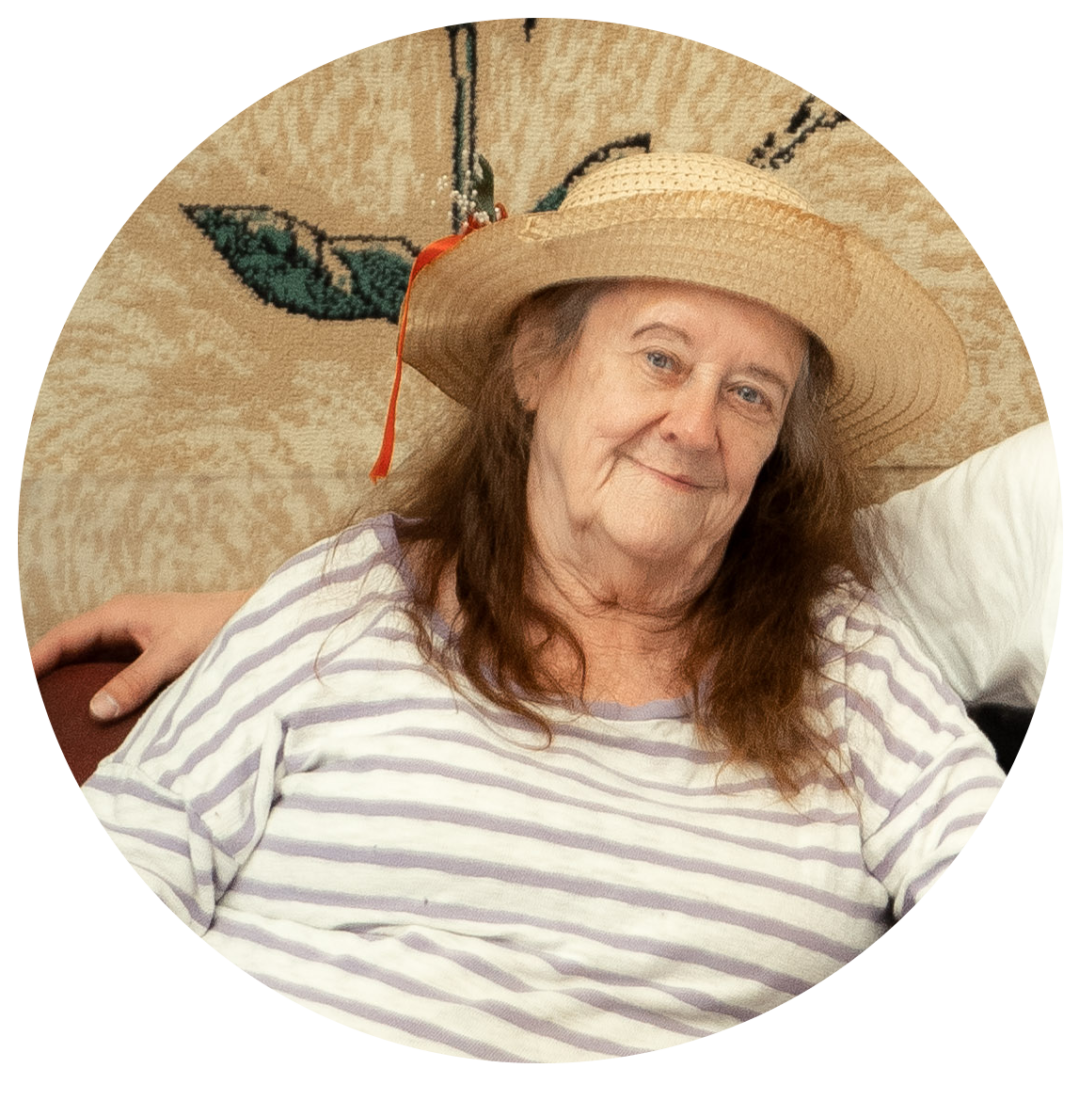
The bar—technically named East Side, but referred to colloquially as Fran’s for its matriarch, Frances Adams—has that kind of power. My pal hadn’t performed karaoke before and hasn’t done it since, but that night inside Fran’s cinder-block walls and under the watchful eye of the outsized cat tapestry that hangs on the bar’s western wall, he ripped through “Thunder Road” like a madman. (Picking a lyrically dense five-minute Springsteen song was one of several ill-advised decisions that evening.)
Adams has run several Nashville bars over the past half-century, including a previous East Side iteration before it moved to its current location in 2008. News recently broke that Adams’s landlord is refusing to renew her lease and raising rent on the building. The parking lot was sold—Adams is having to pay rent on that now too—and this all comes on the heels of a long stretch when Fran’s was closed due to the pandemic. A GoFundMe campaign was launched to help Fran’s staff find and relocate to a new space. But that’s more easily said than done in New Nashville, where skyrocketing real estate prices have forced countless longtime businesses to close altogether.
It’s only a smoky little dive, you might say. How important can it really be to the cultural identity of a city? Sure, maybe hole-in-the-wall bars with cheap domestic beers and quirky decor aren’t as integral to a city’s identity as its museums and libraries. But dive bars also don’t have endowments. More often than not, these bars’ proprietors aren’t the property owners. They are often at the mercy of a given neighborhood’s economic and developmental whims, hanging by a thread and making each month’s rent by the skin of their teeth.
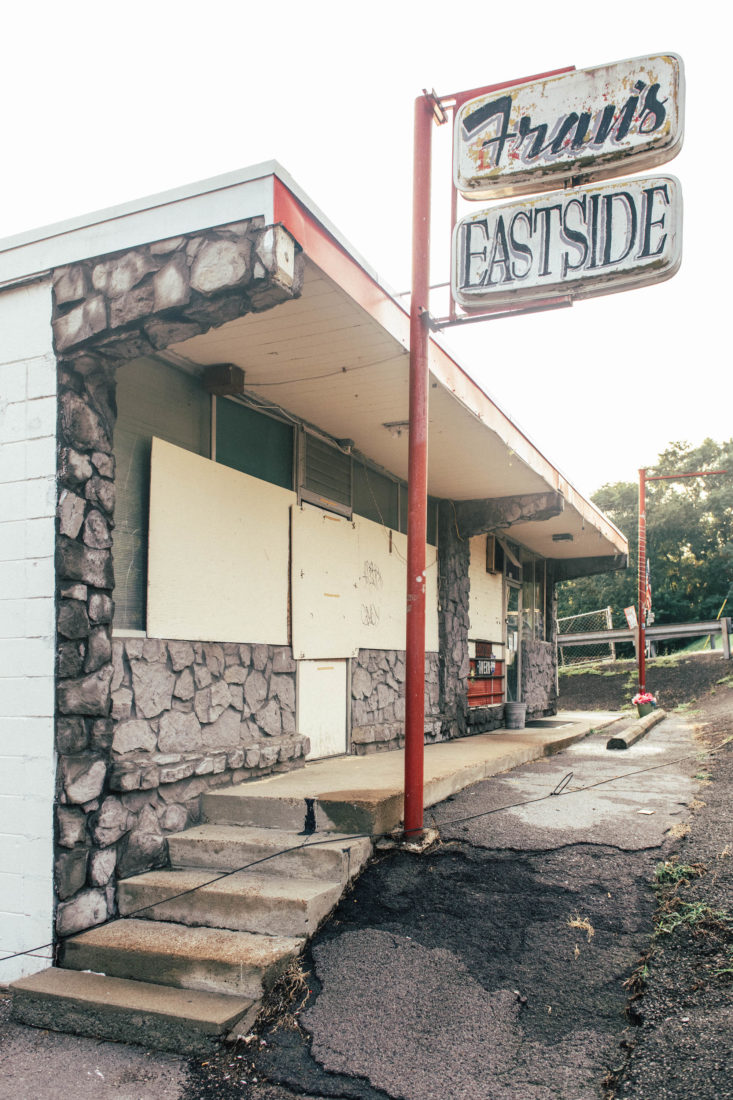
For a long time, Fran’s karaoke was run by a man named Sam Sen. A mysterious guy with a background as a session bass player and a legendary voice, he was widely beloved and, though very protective of his equipment, as welcoming to newcomers as to Fran’s regulars—as long as they were respectful to the space and to one another. When I spoke to Sam for a story I wrote back in 2018, he opened up a little bit about the recent death of his wife, and how his family at Fran’s had helped him through his grief. “They’ve been very good to me,” he told me.
Sam died in early 2020. It was one of those shocking, gutting losses. Not Sam, surely not Sam, Fran’s patrons would say when they heard. I was in there just a few weeks ago, and he pulled out the second mic to duet with me on a Neil Diamond song. But time marched on, and now a picture of Sam hangs on the wall behind the karaoke station, beneath a sign reading “Not responsible for broken bones.” He’s a part of Fran’s ongoing legacy, a collection of names and half-remembered stories and smoky nights full of drinking and singing the classics at the top of our lungs.
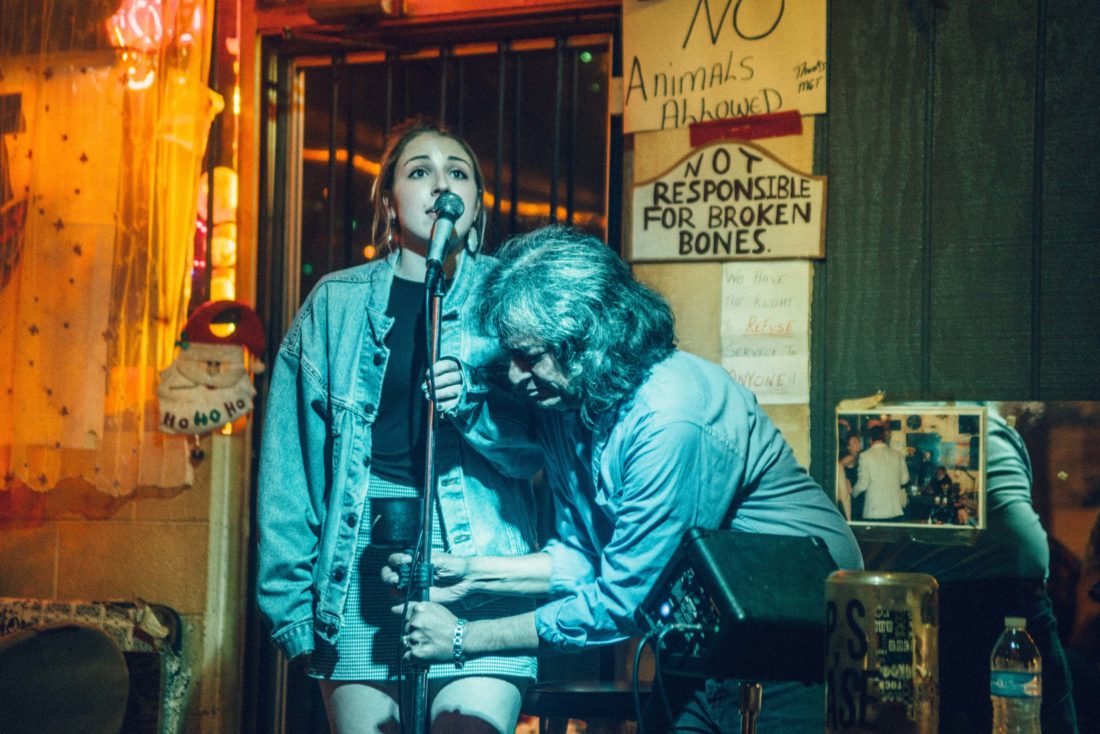
Fran’s, and bars like it, are a home base to whoever needs one. These are places where anyone can find a seat at the bar and commiserate with their fellow patrons over lost jobs and lost love. I’ve seen the communities that crop up at little watering holes like these rally to pay medical bills and funeral expenses. I’ve seen patrons and staff offer up a free meal, a ride home, or even a place to sleep for more than one troubled soul. I’ve also seen those patrons and staff be just as welcoming to clueless tourists, hipster interlopers, and local celebrities looking to blend in with the regulars.
Dive bars are their own little ecosystems. As much as they’re built on cheap wing specials and karaoke nights, they’re built on the communities and unlikely relationships that crop up there. It’s not the alcohol that forges these relationships and these communities (though, admittedly, the booze doesn’t hurt). It’s the fact that there’s a spot at the bar for everyone, with no judgments and no expectations. Something happens to the soul of a city when a place like Fran’s shuts down for good. Maybe, hopefully, Fran’s East Side will find a new home, and the patrons and the good times will follow. But there’s no mistaking that spots like these are endangered, and that welcoming spaces for the old-timers and the lifelong residents are fewer and fewer.
Wherever your version of Fran’s is, pop in soon. Listen to some stories, and drop a few singles in the tip jar.
